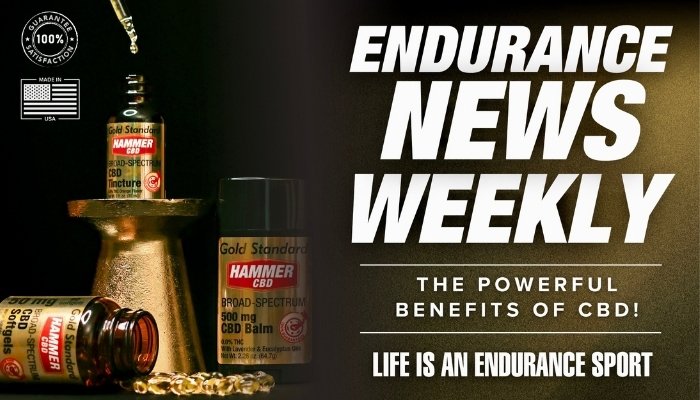BY STEVE BORN
Many endurance athletes tend to focus on carbohydrate intake and pay little, if any, attention to protein. Part of the reason may be due to the many different types of protein available. It can get confusing! Additionally, very few endurance athletes know how much protein to consume on a daily basis. That's where we're going to help!
What kind of protein should I consume?
With allowances given for dietary preferences and restrictions, we recommend a combination of healthy protein powders, used at different times, to provide the most comprehensive support for an endurance athlete's diet.
Whey Protein - The most bioavailable of all protein sources, as well as the richest source of the nine essential amino acids, whey protein isolate is considered the best protein source for recovery: rebuilding lean muscle tissue, providing anti-inflammation benefits, and supporting immune system functioning.
Soy Protein - It's hard to beat soy for general health benefits. Soy protein contains multitudes of health-enhancing phytochemicals, which are believed to be beneficial for cardiovascular health, optimal cholesterol levels, osteoporosis prevention, and possibly even cancer prevention.
Vegan Protein - For people who cannot tolerate dairy or soy-based proteins and/or whose dietary preferences require the consumption of alternate protein sources, Hammer Nutrition's Vegan Protein is the perfect solution! It contains the following five outstanding, 100% organic, plant-based proteins:
- Organic Pea Protein: An easily digested protein with an excellent amino acid profile, containing leucine, isoleucine, valine (the three branched-chain amino acids), lysine, arginine, and glutamine.
- Organic Pumpkin Protein: Derived from the nutrient-rich seeds, pumpkin protein is a complete protein source rich is antioxidants. It is also plentiful in vitamin K and the minerals calcium, iron, magnesium, manganese, zinc, and more.
- Organic Sacha Inchi: Derived from the seeds of the South American Plukenetia volubilis plant, sacha inchi is considered a complete protein source because it contains all nine essential amino acids. It is also a potent source of the essential omega-3 and omega-6 fatty acids.
- Organic Spirulina: A microscopic single-celled alga and complete protein source, spirulina has the highest concentration of protein by weight of any food. Considered by many to be THE superfood of superfoods, it is vitamin- and mineral-dense, and rich in enzymes and antioxidants such as superoxide dismutase. It's a potent source of chlorophyll (second only to chlorella) and essential fatty acids.
- Organic Chlorella: Another single-celled alga and complete protein, loaded with chlorophyll and essential fatty acids. Chlorella is perhaps the most vitamin- and mineral-dense "green food" available, including a complete B vitamin profile. (Chlorella has more vitamin B12 by weight than liver!) Chlorella also contains naturally occurring RNA and DNA for assisting in cellular growth and repair.
How much do I need?
See the chart below to determine if you are consuming enough protein daily (total from all sources). Create a daily protein intake journal and monitor your eating habits over the course of a normal training week. If you aren't getting enough protein, the time to start is now!
Chances are, you may not be getting enough protein each day. Now that you know more about what protein options are available to you, as well as guidelines for how much protein you should consume daily, you no longer need to be puzzled about protein!











